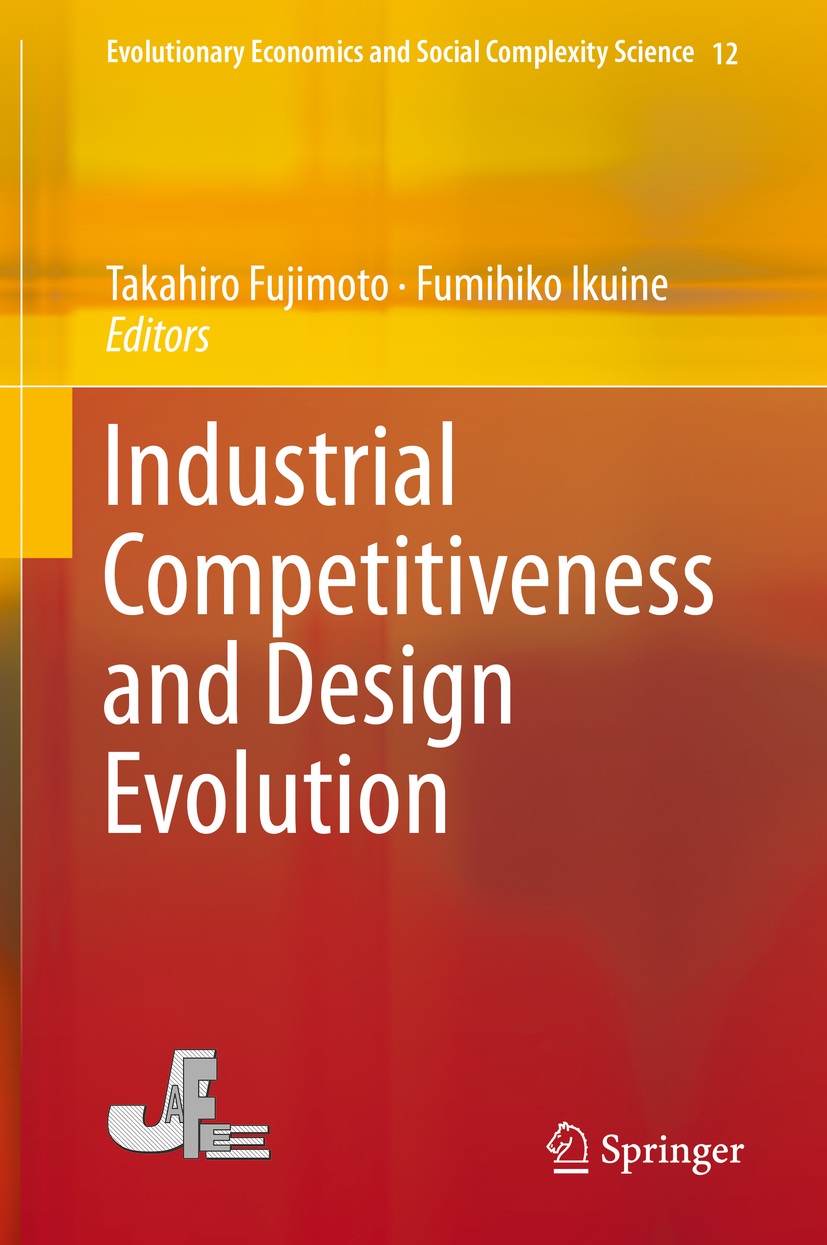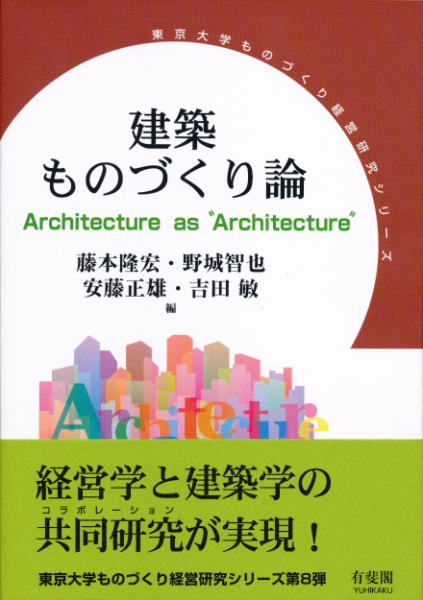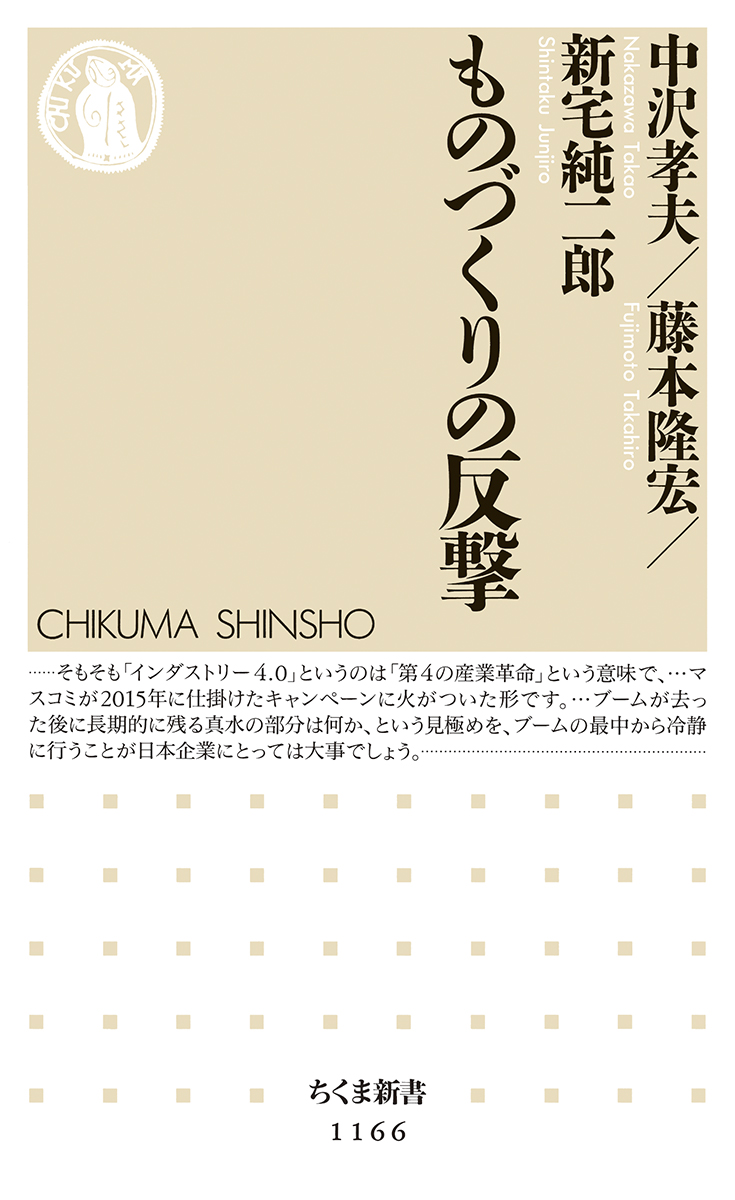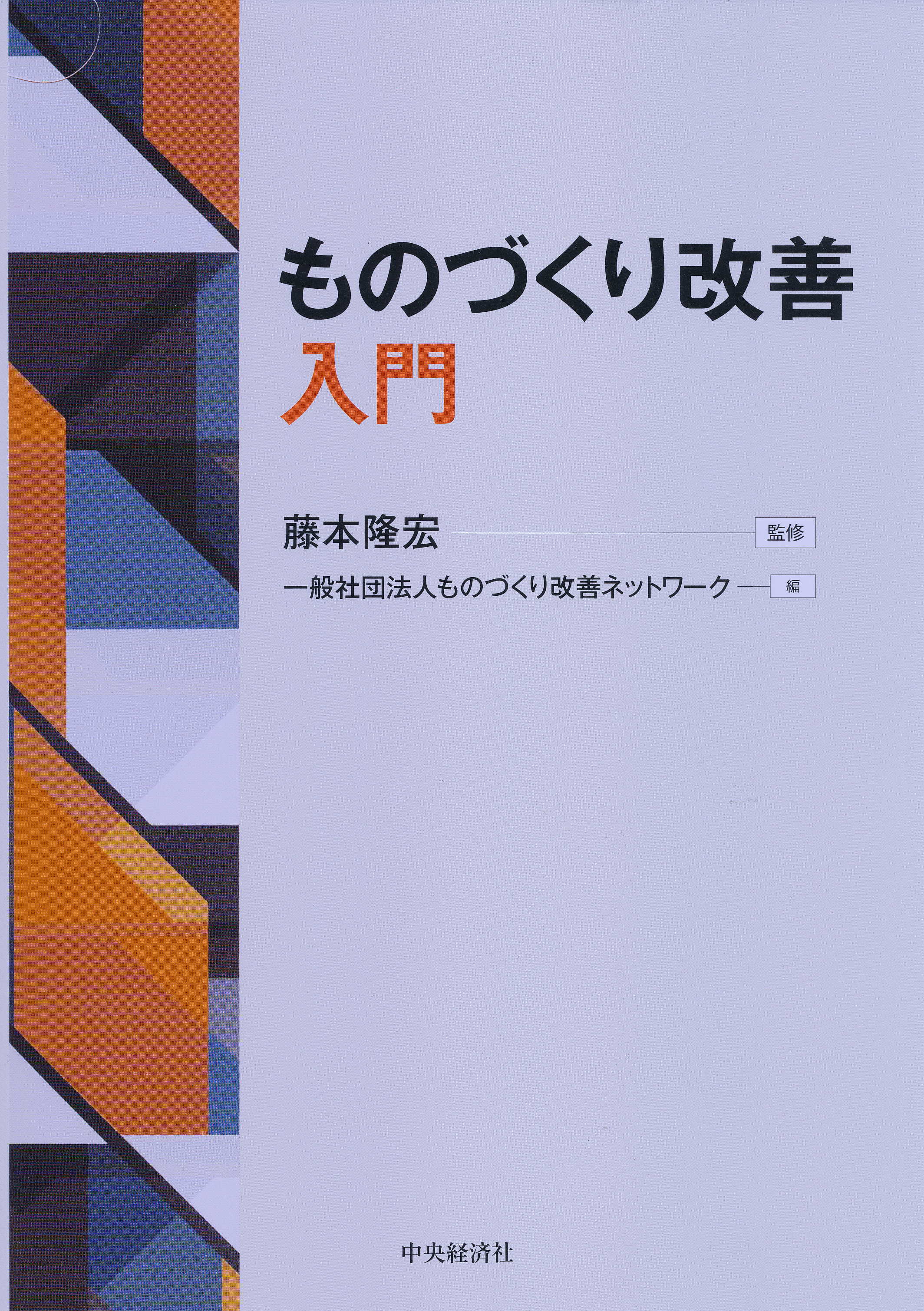
書籍名
Evolutionary Economics and Social Complexity Science 12 Industrial Competitiveness and Design Evolution
判型など
425ページ、ハードカバー
言語
英語
発行年月日
2018年
ISBN コード
978-4-431-55144-7
出版社
Springer
出版社URL
学内図書館貸出状況(OPAC)
英語版ページ指定
本書は、産業や企業の進化を理論的・実証的に探究することを目的としている。理論的には、ものづくり組織能力論、製品・工程アーキテクチャ論、および古典経済学の (リカード的およびネオリカード的) 貿易理論・比較優位論などを組み合わせ、これらを進化経済学の枠組として統合した。産業や企業の基底的な分析単位は、いわゆる「ものづくり現場」、すなわち「付加価値が流れる場所」であると考え、これを分析の基本単位とした。これらに基づき、 本書では、以下のような理論的・実証的課題について論じた:
・「設計の比較優位」をもたらす組織能力・アーキテクチャ・競争力 (CAP: Capability-Architecture-Performance) の産業進化学的な分析枠組の提示。
・「設計=付加価値」概念を基礎とする産業経済学・ものづくり経営学の視点の提示。
・ものづくり能力の進化、労働投入係数の変化、および国際賃金の変化によるリカード的比較優位の動態的分析。
・比較設計費用の概念を用いた国際的な設計立地の選択の分析。
・製品カテゴリー内での主導的な製品アーキテクチャの進化について。
・企業とその成長に対するリソース・ベース戦略論、特に動態能力論の応用。
・産業横断的な製品アーキテクチャの進化 (特にデジタル製品の市場拡大)、特に、オープンアーキテクチャ・プラットフォームによるデジタル産業における補完財間のネットワーク外部性による累積的な需要創出。
・産業ライフサイクルにおける製品設計とアーキテクチャの進化。
・需要創造のための製品多様性の進化・拡大の分析。
・知識の分配にマッチした国際分業のあり方。
・地域重視企業が、物的生産性向上と需要創造 (または安定雇用と利益率) を、現場-企業-産業-経済の全レベルで同時に追求するマルチステークホルダー的行動の分析。
本書の第I部では、理論的枠組とモデルを扱った。第II部以下では、これを様々な産業現象に応用した。特に、20世紀後半から21世紀初頭にかけての先進国と新興国とのグローバルな競争やグローバルな産業のデジタル化など、主要な産業動向への本書のCAP (Capability-Architecture-Performance) フレームワークの適用可能性を論じた。CAPフレームワークは、お客様への価値ある設計情報の流れを管理するものとしての広義の「ものづくり」という基本概念から導き出されたものである。 この枠組において、戦後日本は、統合能力・調整能力に富んだものづくり拠点が多数あり、高機能自動車を含む調整集約型製品 (インテグラル型・擦り合わせ型) において「設計の比較優位」を持つ傾向がある。一方、デジタル技術革新をきっかけに、高度なオープン・モジュラー・アーキテクチャやオープン・インターフェースを備えた製品やプラットフォームが急速に成長した1990年代以降、家電・エレクトロニクス業界の多くの日本企業は、米国のプラットフォーム・リーダー企業 (インテル、マイクロソフト、アップル、グーグル、アマゾンなど) や中国を中心とする低賃金新興国の工場に対して、適切な戦略を策定することが困難であった。本書では、「ポスト冷戦期」(1990~2010年代) の産業進化のダイナミクスをCAPフレークワークを用いて解説する。
(紹介文執筆者: 経済学研究科・経済学部 名誉教授 藤本 隆宏 / 2024)
本の目次
A Design-Information-Flow View of Industries, Firms, and Sites
Takahiro Fujimoto
The Nature of International Competition Among Firms
Yoshinori Shiozawa and Takahiro Fujimoto
Product Variety for Effective Demand Creation
Yoshinori Shiozawa
Capability Building and Demand Creation in “Genba-Oriented Firms”
Takahiro Fujimoto
Evolution of Business Ecosystems
Hirofumi Tatsumoto
Part II Multi-layer Capability Building in Response to Global Competition
Evolution of Organizational Capabilities in Manufacturing: The Case of the Toyota Motor Corporation
Takahiro Fujimoto
The Nature of Surviving Japanese Factories in the Global Competition: An Empirical Analysis of Electrical and Electronics Factories
Mitsuhiro Fukuzawa, Nobuyuki Inamizu, Junjiro Shintaku, Kodo Yokozawa, and Nobutaka Suzuki
The Effectiveness of Group Leaders in the Lean Production System: Time Study and Agent-Based Model of Leaders’ Behavior
Nobuyuki Inamizu and Mitsuhiro Fukuzawa
The Diversity and Reality of Kaizen in Toyota
Shumpei Iwao
Balancing Standardization and Integration in ICT Systems: An Architectural Perspective
Young Won Park and Takahiro Fujimoto
Part III Architectural Evolution and Demand Creation in the Digital Industries
Creating New Demand: The Competition, Formation of Submarkets, and Platforms
Fumihiko Ikuine
Decline in Demand Creation: The Development Productivity Dilemma and Its Consequences
Fumihiko Ikuine
Investigating the Creation and Diffusion of Knowledge for Demand Creation: The Case of the Telecommunications Industry
Wei Huang, Masanori Yasumoto, and Jing-Ming Shiu
The Impact of Platform Providers’ Knowledge on Interfirm Division of Labor: The Case of the Mobile Phone Industry
Jing-Ming Shiu and Masanori Yasumoto
Conclusion
Takahiro Fujimoto and Fumihiko Ikuine



 書籍検索
書籍検索


 eBook
eBook



